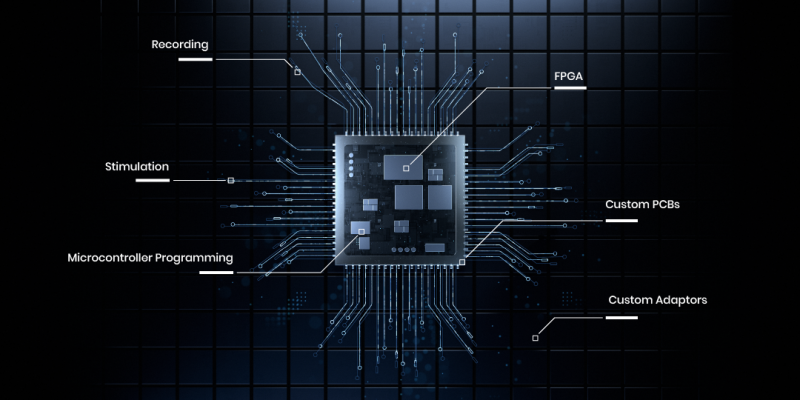Prominent venture capitalist Peter Thiel today announced he has invested in a company that’s rivaling Elon Musk’s Neuralink Corp. in the emerging brain-machine interface technology space.
The co-founder of Palantir Technologies Inc., who was also an early backer of Facebook Inc. and founded PayPal Inc. with Musk back in 1998, is backing a company called Blackrock Neurotech in a $10 million funding round.
Christian Angermayer’s re.Mind Capital led the round, with Thiel, German entrepreneur Tim Sievers and Sorenson Impact’s University Venture Fund II also participating.
Blackrock, owned by its parent company Blackrock Microsystems, LLC, was founded in 2008 and is based in Salt Lake City. It has been in the business of neuroscience hardware and software for more than a decade.
One of Blackrock’s biggest bets is on a brain-computer interface that enables people with limited movement and other disabilities to do things they are physically unable to do, such as moving artificial limbs or talking through a voice synthesizer.
That puts Blackrock in direct competition with Neuralink, which launched in 2017 and made headlines earlier this year when it showed a monkey playing video games with its mind using that company’s Link device. The company also demonstrated its technology being used by a pig named Gertrude.
Blackrock and Neuralink’s BCI devices measure just a few millimeters and are implanted into people’s brains in the area where doctors want to record activity. For a patient who struggles with hand movement, the BCI would be implanted in the pre-motor cortex to record activity there.
The device then records neuron activity within that part of the brain, or in other words what the person is thinking, and then sends that activity to a computer. The software interprets what the brain is trying to do, and an algorithm transforms that into commands that can move a cursor, control a robotic arm or create voice patterns.
Neuralink has stolen most of the headlines thanks to its backer Musk, but Blackrock claims that its technology is more advanced and said it has already been implanted in 28 patients in the U.S., China and Europe as part of medical trials. Its tech also been tested on primates and rodents, the company said.

“There are human patients using our implants and technology already to accomplish things directly with their minds that were unimaginable 10 years ago,” Blackrock Neurotech Chief Executive Marcus Gerhardt told CNBC in an interview.
He explained that some tetraplegic patients are using the company’s BCIs to move robotic limbs directly with their thoughts. Another patient who has been unable to talk because of amyotrophic lateral sclerosis or ALS now can communicate with a voice synthesizer controlled by his brain.
“Enabling people to walk, talk, see, hear and feel again is a massive market as more than 5 million people in the U.S. are living with some form of paralysis,” Angermayer said. “Blackrock’s first applications will enable patients with severe physical and neurological impairments to regain function and reclaim their lives.”
Analyst Holger Mueller of Constellation Research Inc. told SiliconANGLE that human-machine communication is one of the most promising areas of artificial intelligence research as it has the potential to unchain humans from traditional input mechanisms like keyboards, pointing devices and touchscreens.
“While voice controls are getting more popular, they are still slower than thoughts,” Mueller mused. “Whichever companies can come up with the first brain-to-machine interface will change the human relationship with computing in a way that’s more profound than anything since the invention of the QWERTY keyboard. So it’s good to see startups like Blackrock Neurotech getting capital from prominent investors that have succeeded in the past.”
Blackrock said that during its human trials, its devices were connected to patients via wires that passed through the skin. However, the company is working on less invasive wireless devices too. Eventually, the company says, its devices can be widely distributed in the same way that pacemakers are today.
“We’re aiming for a commercially available device next year, at the latest,” Gerhardt said.
Image: Blackrock
Since you’re here …
Show your support for our mission with our one-click subscription to our YouTube channel (below). The more subscribers we have, the more YouTube will suggest relevant enterprise and emerging technology content to you. Thanks!
Support our mission: >>>>>> SUBSCRIBE NOW >>>>>> to our YouTube channel.
… We’d also like to tell you about our mission and how you can help us fulfill it. SiliconANGLE Media Inc.’s business model is based on the intrinsic value of the content, not advertising. Unlike many online publications, we don’t have a paywall or run banner advertising, because we want to keep our journalism open, without influence or the need to chase traffic.The journalism, reporting and commentary on SiliconANGLE — along with live, unscripted video from our Silicon Valley studio and globe-trotting video teams at theCUBE — take a lot of hard work, time and money. Keeping the quality high requires the support of sponsors who are aligned with our vision of ad-free journalism content.
If you like the reporting, video interviews and other ad-free content here, please take a moment to check out a sample of the video content supported by our sponsors, tweet your support, and keep coming back to SiliconANGLE.
"interface" - Google News
May 20, 2021 at 08:15AM
https://ift.tt/33WtB4H
Brain-machine interface firm Blackrock Neurotech gets $10M funding - SiliconANGLE News
"interface" - Google News
https://ift.tt/2z6joXy
https://ift.tt/2KUD1V2
Bagikan Berita Ini














0 Response to "Brain-machine interface firm Blackrock Neurotech gets $10M funding - SiliconANGLE News"
Post a Comment